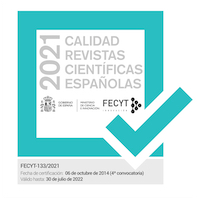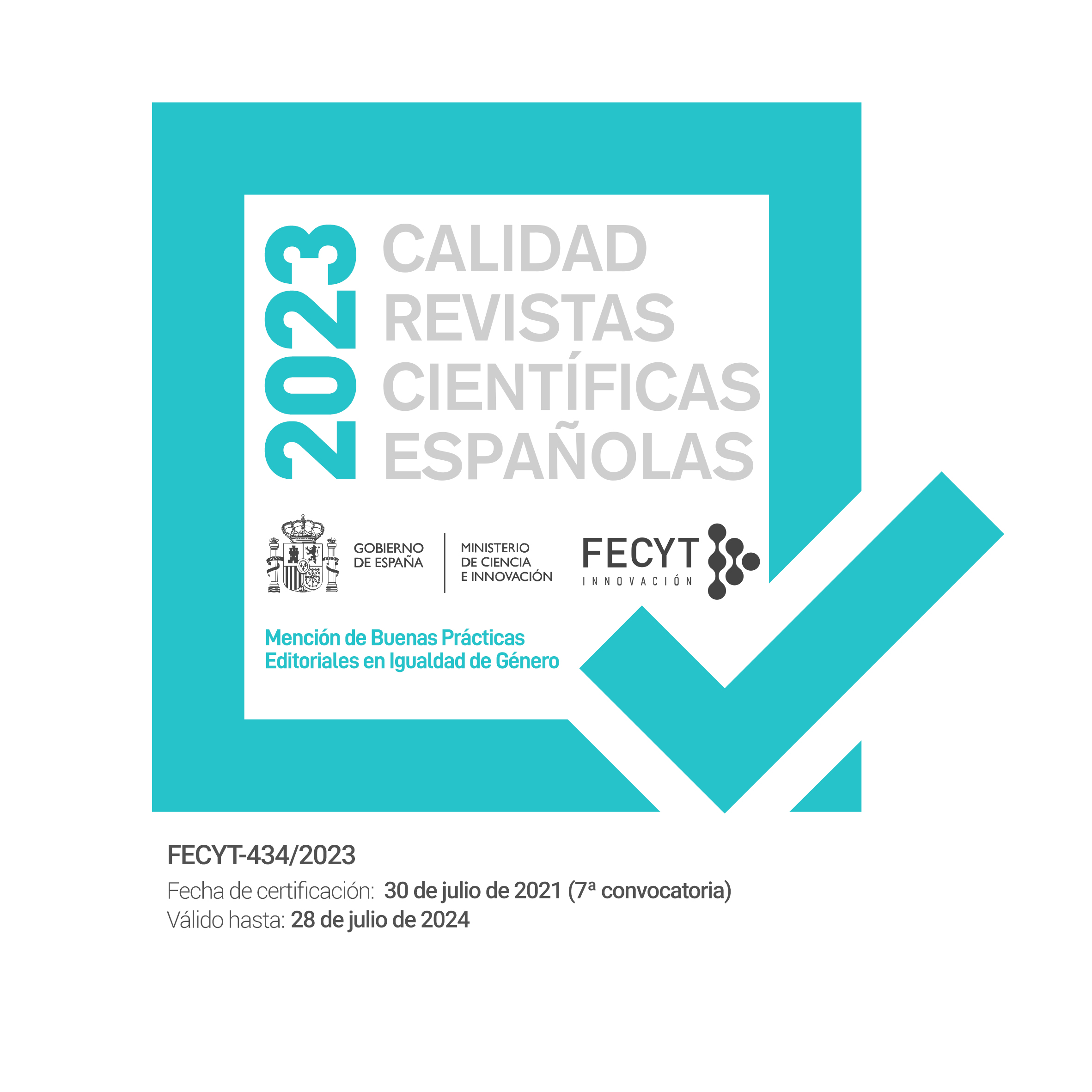Peer-review process and Publication ethics
Peer-review process
The journal is published bi-annually in June and December. Submissions will be evaluated by two anonymous and external editors (referees), unconnected to both theinstitution and the editorial board according to the system of “revision by pairs”(double-blind). Acceptances or refusals with the reasons for the decision will be sent tothe authors before 60 calendar days. This review reserves the right to modify, partially,the style or format of the works presented.
All authors promise to follow the suggestions of the editors in order to modify the submissions accepted. After the publication they will receive three copies of the reviewand a pdf file with the final format.
The editorial board will review the originality of the work through the turnitin platform. In any case the plagiarism or lack of originality in the papers presented will be not allowed.
All submissions to the journal are initially reviewed by the editorial office. At this stage, manuscripts may be rejected without peer review if it is felt that they are not relevant to the journal's scope or do not conform to manuscript formatting requirements. This fast rejection process means that authors are given a quick decision and do not need to wait for the review process.
Manuscripts that pass initial screening will be forwarded to the appropriate section editor. The section editor may suggest rejection based on fatal design flaw, inappropriate replications, lack of novelty, or other major concerns. If appropriate, the paper will be sent out for peer review (i.e. obtaining advice on individual manuscripts from reviewers’ expert in the field), usually to 2 independent reviewers who will provide objective comments. It is specified that the reviewers should have no conflict of interest. The section editor may recommend rejection or acceptance at this point, after which the manuscript and reviewer comments are made available to the editor-in-chief for a final decision to the authors. The manuscript will be sent back to the corresponding author for revision according to the guidelines of the reviewers. Authors have 4 weeks to complete the revision, which shall be returned to the section editor. Failure to return the manuscript within 4 weeks will lock the author out of re-submitting the revision. Reviewed article must be treated confidentially.
Rejected manuscripts can be resubmitted only with an invitation from the section editor or editor-in-chief. Revised versions of previously rejected manuscripts are treated as new submissions Vergentis is committed to maintaining the highest standards of publication ethics and to supporting ethical research practices. Allegations of misconduct will be severely investigated. If notified of a potential breach of publication ethics, we encourage journal editors and staff to inform their Vergentis contact as soon as possible. Vergentis staff are trained on how to proceed with investigations into allegations of ethical misconduct and will seek legal counsel when necessary.
Evaluation Form used by the referees: Download PDF
Information of interest: in the last 2 years there has been a 28% rejection rate of articles through the double-blind peer review system.
Average time for the publication process in Vergentis
- Average review time: 56.71 days (2 months)
- Average publication time after acceptance: 87.86 days (3 months)
Code of Ethics and Best Practice Guidelines
Vergentis Journal adheres to the Code of Conduct and Best Practice Guidelines established by the Committee on Publication Ethics (COPE) (Code of Conduct and Best Practice Guidelines for Journals Editors and Code of Conduct for Journals Publishers).
Publishers and editors shall take reasonable steps to identify and prevent the publication of papers where research misconduct has occurred. In no case Vergentis or its editor encourages such misconduct, or knowingly allow such misconduct to take place. Vergentis will take reasonable steps to identify and prevent the publication of papers where research misconduct has occurred. Vergentis staff will seek legal counsel when necessary. In no case Vergentis will encourage such misconduct, or knowingly allow such misconduct to take place In the event that Vergentis publisher or editors are made aware of any allegation of research misconduct, the publisher or the editor shall deal with allegations appropriately Vergentis recognizes its responsibility to correct errors that it has previously published. Vergentis’ policy is to consider refutations (readers' criticisms) of primary research papers, and to publish them (in concise form) if the author provides compelling evidence that a major claim of the original paper was incorrect. Refutations are peer-reviewed, and where possible they are sent to the same referees who reviewed the original paper. A copy is usually also sent to the corresponding author of the original paper for signed comments. The published refutation or retraction is linked online to the original paper, and the published paper is linked online to the refutation or retraction. The editorial board will review the originality of the work through the turnitin platform. In any case the plagiarism or lack of originality in the papers presented will be not allowed.
Authors are requested to sign the declaration of originality of the Journal: Download PDF
Gender policy
Vergentis expressly and publicly assumes an affirmative editorial policy aimed at eliminating gender inequality in its editorial processes. To this end, it is committed to parity in the composition of its management bodies and in the selection of its external evaluators. It also undertakes to promote the visibility of research carried out by women by encouraging the publication of quality articles and the review of relevant books by women authors. It is also committed to inclusive and neutral language. In this way, it hopes to contribute to overcoming the structural obstacles that limit women's participation in the processes of production and dissemination of knowledge.
AI policy
Vergentis recognises the positive impact of large language models (LLMs), Mixture of Experts (MoE) and generative AI as productivity tools that can assist authors in certain ways (e.g., ChatGPT, Copilot, Gemini, Mixtral, etc.). However, it is crucial to recognise that these models have limitations and cannot replicate or replace human thought and work.
The misuse of AI in academic research and publishing includes the generation of content that supplants human originality without transparency or proper attribution, as well as the manipulation of data or results using AI technologies without explicit disclosure.
Authors are obliged to explicitly specify in the manuscript the use of language models or other artificial intelligence-based tools, indicating the specific model used and the purpose of its use. Include this information in the methods section or in the acknowledgements, as appropriate.
In cases where publications are detected that have not declared the use of these tools, we will proceed to implement the necessary corrective measures.








